Books as Weapons, 2016
Posted by KT on Friday, December 30, 2016 · 1 Comment
- Tragedy: The Orestia by Aeschylus and Sophocles Electra. It was Richard Strauss’s version of the latter at the Met this spring (for me the artistic achievement of 2016) that set me off rereading classic tragic magic in light of our very American dilemmas. The curse of the House of Atreus, also my family’s saga, has weighed heavily on me this year. Since the election, I’m taking it personally. Ask Apollo. Dem a roots.
- Comedy: The Sellout by Paul Beatty. Street sweet black attic figuring in a noir LA wasteland. Unlike irony, which like narcissism has been normalized, sarcasm (remember this in the coming year) is not dead. I haven’t read anything so scoff-out-loud funny since 1992. A crying need is generally felt.
- On White Folks: I’ve other interrelated bookends in Nancy Isenberg’s White Trash: The 400 Year Untold Story of Class in America, Sam Quinones’ Dreamland: The True Tale of America’s Opiate Epidemic, and Arlie Russell Hochschild’s Strangers In Their Own Land: Anger and Mourning on the American Right. These’d be my people if I hadn’t left the provincial for the cosmopolitan world 45 years ago and these books answer why. Arlie nails their commonality in the quote of the year: “Pollution is the price we pay for capitalism.”
- On Black Folks: Bobby Seale & Stephen Shames’ Power to the People: The World of the Black Panthers. The Party’s Ten Point Program is, in Ericka Huggin’s words “…absolutely valid today.” Given our recent white supremacist coup, this is as good a place to start a counter coup as you can do now. Educate yourself. Books Are Weapons in the Battle Against the Babble of Babylon.
- I’ve long been an advocate for the hardcore Zimbabwean Afro-punk precedent Dambudzo Marechera, who’s impolite and Artaud-esque 1979 House of Hunger remains deeply embedded in my DNA.
- On White Folks, Pt. 2.: In the year of Hamilton as infotainment’s Broadway Joe, Roger G. Kennedy’s Burr, Hamilton, and Jefferson: A Study in Character remains the best corrective to the minstralized history of the neo-con/lib Lin-Manuel Miranda’s disingenuous evangelical prosperity theology celebrating white privilege. No, Hamilton didn’t do anything for abolition. Yes, he set the precedent for turning the American military on the American people, was a dreadful misogynist, the New York Post is his paper, and his Electoral College have brought us both Bush & Trump. And don’t get me started on Lin-Manuel’s awful Republicanized rap. (Full disclosure: He wrote several scenes from the musical in rooms full of Mrs. Thometz’s Burr-related art at the Morris-Jumel Mansion). Mr. Kennedy patiently deconstructs the liberal myth of T. Jefferon and firmly establishes his better deserved rep’ as the Founding Father of White Supremacy in America. Brother Burr comes off the radical revolutionary, the “dude with the plan to stick it to the man.” Burr: chillin’.
- Poetry: John Berryman’s Dream Songs. Get the FSG edition with the 385 as opposed to the 77 poems as 77 aren’t enough. I was one of the first on the scene to witness the poet’s self-murder and his ghost’s haunted me ever since. These dialogues between Henry and Mr. Bones is the best jazz in poetry ah knows and Lawdy knows we all need more jazz in our lives for What is Jazz? Robert Farris Thompson’s inclusive definition, “Jazz is white people playing black music and black people playing white music,” resounds herein.
- In These Dark Times: Catholic with a small c. – Marshall McLuhan’s The Gutenberg Galaxy, The Media is the Message and War and Peace in the Global Village presage the consequences of our being changed by the usurpation of print by the electronic word. In the early 60s he prognosticated the computer becoming a home appliance, the internets, and their Brave New World/1984/2001 unassumed perplexities. Hardly a Luddite, he forewarns of the highly efficient totalitarian/monopolist nature of digitalization’s cannibalistic effect on our lost democratic/secular/liberal humanist individualism. Get hip.
- In These Dark Times, Pt. 2. Catholic with a large C. Toward grappling with the spiritual matters attendant the Decline of the West, Thomas Merton has been a consolation since my generate youth. I read The Seven Story Mountain, often called “The best spiritual autobiography of the 20th century,” in mid-century and again in the early 21st, when it’d aged like a fine wine. His sojourn in Depression era Harlem resonates. More often it’s his poetry I go back to, particularly Cables to the Ace. While I don’t consider him a Beat poet anymore than he would, to me he’s the best of the lot. To which I should add Hannah Arendt’s In These Dark Times. Hannah rarely errors. I never forget Eichmann in Jerusalem.
- Jazz: A tip of the hat to my man with the horn, Dwayne Clemons, for recommending Raise Up Off Me, Hampton Hawes & Don Asher’s poetic collaboration written in the vernacular of LA’s Central Avenue. Like Quincy Troupe’s co-authoring Miles’ autobiography, the bell clear tone of this golden oldie’s improv’ on drugs and sex and rhythm and blues elevates the mundane junkie chores & scores way up past the expectable tropes to the top of the charts. Two other poets works, Greg Tate’s Flyboy 2 and Kevin Young’s The Grey Album…..On the Blackness of Blackness well deserve kudos for preserving the literacy of bebop virtues on an increasingly soulless digital planet and helping to preserve Cool’s good name. Herein been-to Harlem res’ Tate meets new-to Kevin, who joins us Uptown from Emory as Capt. of HM(other)S(hip) Schomburg, which is one of the very best reasons to live here. Come the Revolution we’ll be riding in the Cadillacs and they’ll be throwing the stones.
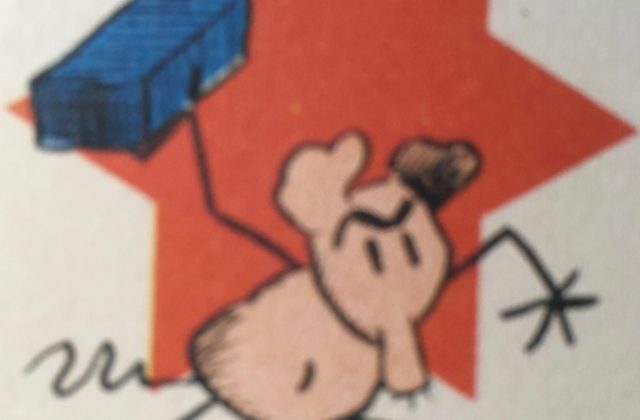
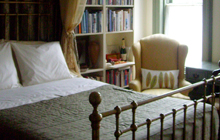 Jumel Terrace B&B
Jumel Terrace B&B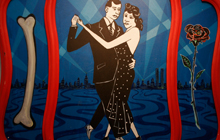 Life Turns Man Up & Down
Life Turns Man Up & Down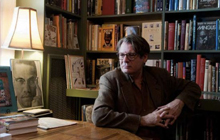 The Private Library
The Private Library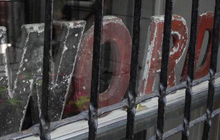
I was attempting to give ye two thumbs up but could only find one, and it were small and blue. boo hoo